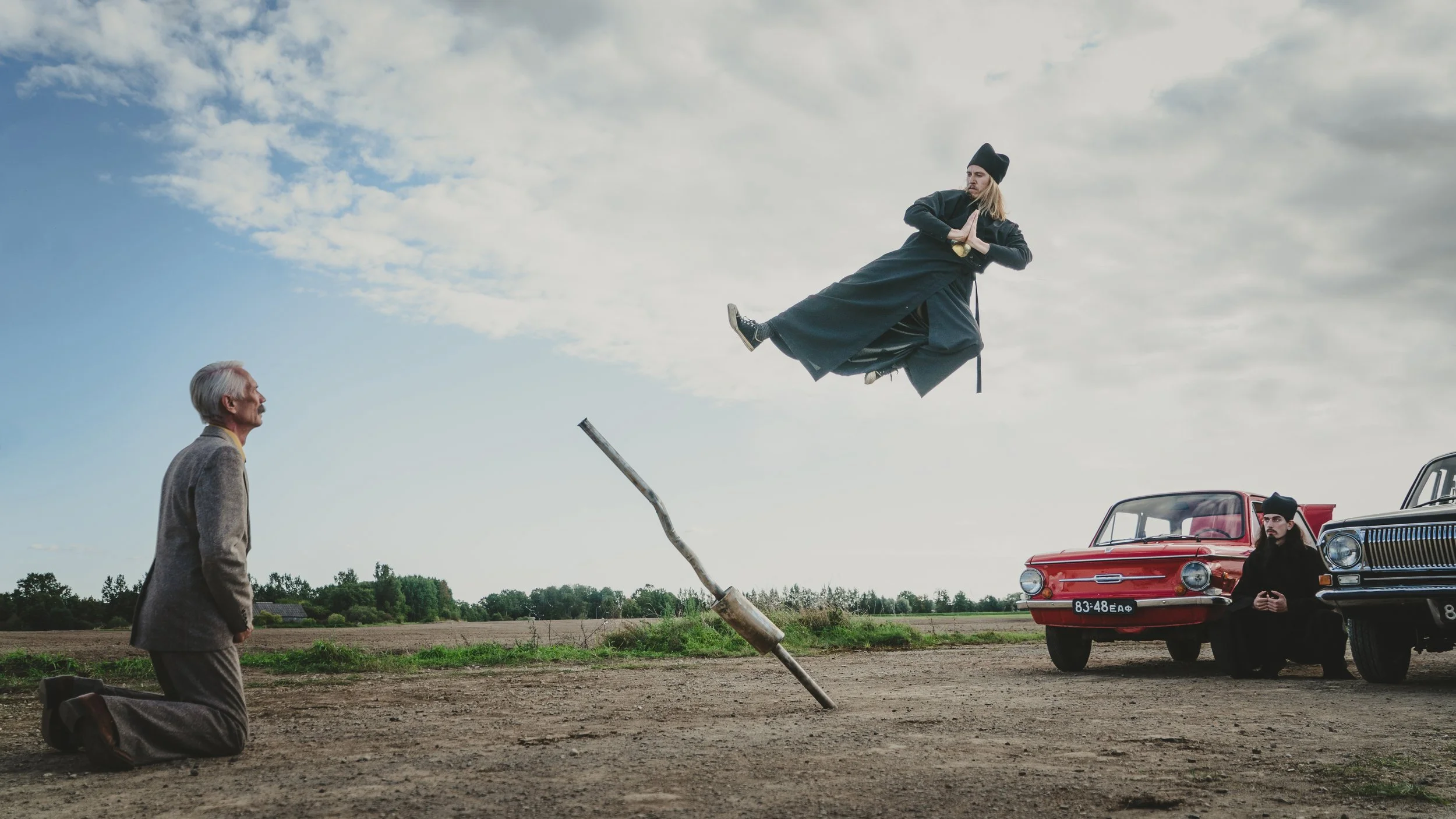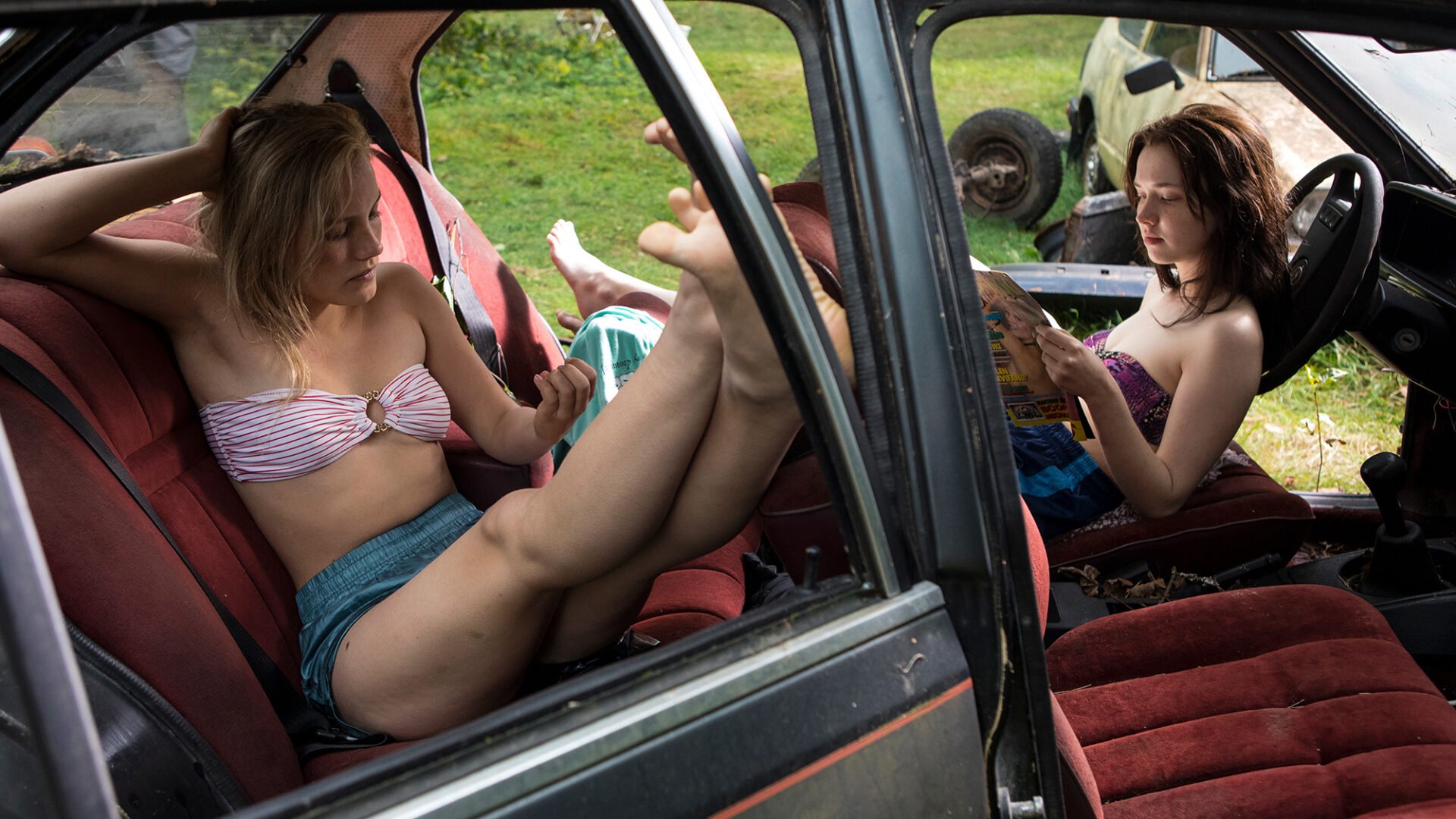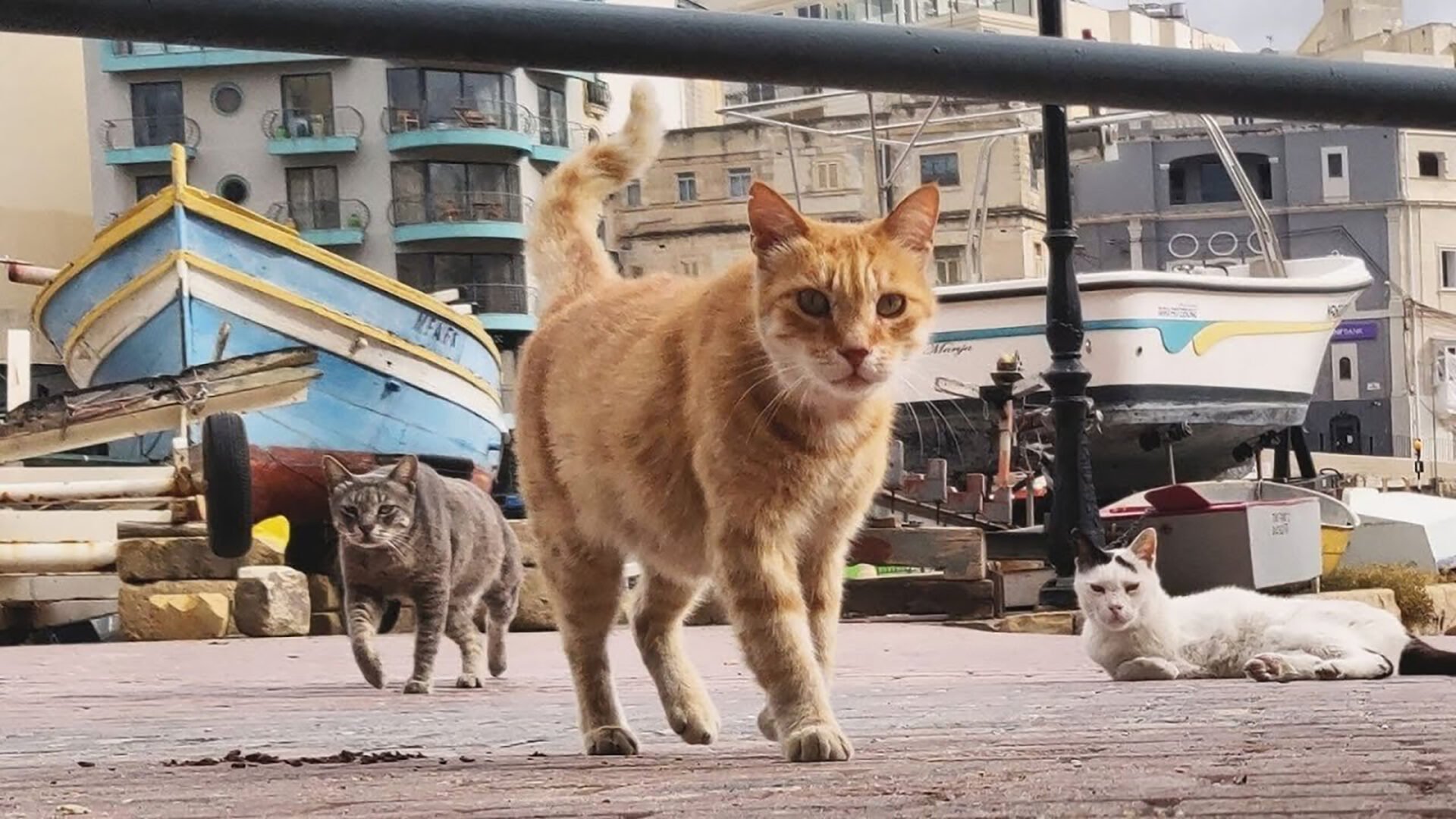Film reviews: Kung-fu warriors and family dysfunction at the European Union Film Festival
The Cinematheque’s annual screen trip to Europe spans silly, Estonia-set The Invisible Fight, Finland’s unsettling 1980s teen drama Light Light Light, and more
Estonia’s The Invisible Fight.
The Cinematheque presents the European Union Film Festival from November 14 to 28
THE CINEMATHEQUE advertises it as “Europe without the jet lag”—true!—but the offerings on view at the 27th-annual European Union Film Festival are also thoughtful peeks into regions of the continent a traveller would never see, plane trip or not. Below are just a few of the screenings at hand, spanning airborne kung-fu fighters in Estonia, a highly dysfunctional family of snobs in Slovenia, and more. Read on.
THE INVISIBLE FIGHT
Estonia/Greece/Latvia/Finland
November 22 at 8:50 pm
This irrepressible comedy begins with three kung-fu warriors flying Wuxia-style across the tree-tops during a raid on the China-USSR border. The film doesn’t care to explain why. All we need to know is that the sole survivor of the attack, border guard Rafael, now assumes that he’s been given a sign from God. And so he pursues his studies in a martial arts monastery where everyone looks like a temple priest from Jesus Christ Superstar, especially his chief rival and fellow student Irinei. There’s also a woman, naturally, a KGB agent, and a mischievous demon to complicate Rafael’s not-quite-solemn path to ascendance, along with his unimpressed mother who wishes the kid would just settle down with a bottle of vodka. Speaking of intoxication, Estonian director Rainer Sarnet’s film is pretty drunk on its own silliness, with Jackie Chan slapstick (including a clear homage to Drunken Master) colliding into broad period comedy and bouts of unbottled surrealism, which also go unexplained. Its indisputable charm is embodied by Ursel Tilk as the innocent Goofball of Destiny, Rafael, while the use of Black Sabbath’s “The Wizard” whenever the film swings into king-fu action conjures something thrillingly alien to Western viewers: nostalgia for Brezhnev-era USSR. AM
Finland’s Light Light Light.
LIGHT LIGHT LIGHT
Finland
November 16 at 6:30 pm
Two very appealing young leads carry this period drama from Finland. Make that three—the film’s time-hopping narrative dumps one of them into the present, where she’s haunted in midlife by a mysterious event in the past and her mother’s most recent bout of cancer. In contrast, Mariia is a bright and reasonably happy high-school student back in ’86, when the meltdown at Chernobyl brings fear and poisonous rain to her small village. Arriving at roughly the same time is the moody Mimi. She provokes unexpected urges in Mariia that play out expertly in Inari Niemi’s film, which boasts a convincing grasp on the teasing, sometimes-hurtful dynamic between two teens in the terrifying throes of self-discovery, mirrored in the casual if harmless sibling brutality that frequently flares between Mariia and her brother. Even then, her middle class existence is cozy compared to Mimi’s decrepit family, made up of pervy uncles, her alcoholic father, and a single ally in her ailing grandmother. For Mimi, a queer relationship in small-town ’80s Finland is less an adventure than it is an escape—and it’s still not enough. Light Light Light is absorbing, sensitive, warm, and lovely to look at, but its core is dangerously unstable. AM
The Slovenia-set Family Therapy.
FAMILY THERAPY
Slovenia/Italy/Norway/Croatia/Serbia
November 23 at 8:40 pm
Family Therapy opens in slo mo, a beatup car pulling to the side of a forested road, smoke billowing from beneath its hood. Soon it breaks into flame, two parents and their child fleeing to the sound of driving orchestral strings. But it turns out they’re not the clan of the film’s title. That would be the Kralj family, speeding by the scene in their luxury sedan, without stopping to help. The sequence is a perfect introduction not just to the deadpan, slyly absurd humour of director-writer Sonja Prosenc’s biting Slovenian-set class satire, but to the stylistic chops of her cinematography and score team. Together, they’ve reinterpreted Paolo Pasolini’s 1968 film Teorema—enigmatic Quebec actor Aliocha Schneider ably taking the role originated by Terence Stamp as the young stranger who stirs up a rigid, upper-class household. Quiet, kind, and openhearted Julien, patriarch Aleks’s (Marko Mandić) estranged son from a previous relationship, is visiting from France. And he’s visibly shocked by the callousness of the Kraljs, whether they’re accelerating past the burned-out car or treating their sickly—and deeply unhappy—tween daughter Agata (Mila Bezjak) like a caged bird. He also attracts the sexual attention of Aleks’s beyond-uptight art-gallerist wife (Katarina Stegnar). The acting is strong across the board as the film ruthlessly tears down the nouveau riche and arty pretensions—including a ridiculously poseur-ish party that goes horribly awry. Sometimes its commentary on class seems simplistic (though one quick reference to refugees suggests the potential for deeper analysis of an increasingly well-off country that has taken in people fleeing both Ukraine and the former Yugoslavia). But wow, it’s stylishly shot—everything heightened as the camera plays the perfect concrete-and-glass Kralj mansion off the verdant forest outside; the parents’ bedroom is a cold cube with cement walls and ice-blue satin sheets, the wilds of nature barely contained out its floor-to-ceiling windows. Of course, it’s fun to watch as the mansion’s—and the family’s—perfect surfaces crack and crumble. JS
Cats of Malta.
CATS OF MALTA
Malta
November 21 at 6:30 pm
Malta is inhabited by roughly 450,000 people, some 100,000 stray cats, and a single Australian filmmaker chronicling this feline-heavy demographic in the Mediterranean Sea. Sarah Jayne Portelli has crafted an obvious crowdpleaser with Cats of Malta, which casually dispenses little nuggets of insight inside a slight 70-minutes. She focuses on a handful of feeders of varying dedication, like a charming 13-year-old boy who considers it his “job” to manage the welfare of his local cat population, a Brit expat who chose kitty-care over a life in theatre, and an older lady who fashioned a public-space Cat Village until the local government told her to quit it. Every moggie in this film is a star, as is the sun-bleached island itself, so it’s hard to know where to look sometimes. And while Cats of Malta repeats what we already know about these unfathomable creatures, who are affectionate but aloof in a way that fascinates humans, it also hints at the attendant underside of that relationship. Most kittens in Malta don’t make it to adulthood, either crushed by man-machines or worse, lost to sadism. A story told early in the film stands out: a woman saved and nursed a horribly beaten dominant male who repaid the favour by attacking her. Years later she laughs as he hovers nearby, still commanding and menacing his patch with only three legs, but it’s the one time the film manages to escape human psychology and take on its subject’s POV. AM ![]()






































